Many Things to consider before getting a pet by || @chidiebere1
Greetings to all steemians, and how was your day, i most say this i am really grateful to be a part of this community talking and learning about pets every day and night which is my favorite,so many people make a wrong chioce by picking a pet due to no understanding about them but just making a eye saw from families and friends, so today i will be giving you the notable point of mine to choose a good pet but before i start, a brief detail about guinea pigs pet will be shown below.
PET:
A pet is an animal that you keep in your home to give you company and pleasure.example domestic guinea pig, also known as the cavy or domestic cavy, is a species of rodent belonging to the genus Cavia in the family Caviidae.guinea pigs are not native to Guinea, nor are they closely related biologically to pigs , and the origin of the name is still unclear. They originated in the Andes of South America .
10 things to consider before get a guinea pig
- Make sure allergies will not be a problem
Some people are allergic to guinea pigs, and some are allergic to the timothy hay that is an essential part of their diet. Rather than having to get rid of a guinea pig because your child can’t stop sneezing, think beforehand about whether allergies could be a problem.
2 Guinea pigs are social
In the wild (yes, there are wild guinea pigs in some parts of the world), guinea pigs are herd animals. Most guinea pigs will not be happy by themselves. If you are thinking about getting a guinea pig, realize you will really need a pair.
With that said, guinea pigs have personalities, and they do not all get along with each other. Getting two at the same time so they can grow up together is a good idea.
3 Guinea pigs need space
Many guinea pigs live in cages that are far too small. Even the largest cages sold in most pet stores do not provide nearly enough space. Two guinea pigs need at least seven square feet of floor space, and they will be much happier and healthier with ten square feet.
4 Guinea pigs live a long time
Unlike some smaller rodents that have lifespans of only two to three years, guinea pigs live for around six years. Do not get a guinea pig unless you are willing to make that kind of commitment.
Keep that in mind when considering buying a guinea pig for a child; the child will likely lose interest long before the guinea pig dies, which means a responsible, interested adult will need to take over the care.
5 Guinea pigs have babies at a very young age
Female guinea pigs can get pregnant starting at about three weeks of age. Males can do their part at about the same time. This means that, when you adopt a female guinea pig, there is a good chance she could already be pregnant.
And pet store employees are not always knowledgeable enough to accurately determine the sex. If you want to be absolutely sure you will not have guinea pig babies, adopt a spayed female from a shelter; another option is to adopt two of the same sex from someone who knows how to tell the difference.
10 Things to Know Before Buying a Guinea Pig
Cute, soft, and squeaky, guinea pigs are a favorite when it comes to small pets. But a lot of people think guinea pigs are kind of like fish – set up a cage, provide food, water, and your cleaning services, and that is it. Wrong.
Guinea pigs make wonderful pets, but there is a lot more involved in taking care of a guinea pig than in taking care of a fish. Here are some things to know before you get one of these adorable little rodents.
Make sure allergies will not be a problem
Some people are allergic to guinea pigs, and some are allergic to the timothy hay that is an essential part of their diet. Rather than having to get rid of a guinea pig because your child can’t stop sneezing, think beforehand about whether allergies could be a problem.Guinea pigs are social
In the wild (yes, there are wild guinea pigs in some parts of the world), guinea pigs are herd animals. Most guinea pigs will not be happy by themselves. If you are thinking about getting a guinea pig, realize you will really need a pair.
With that said, guinea pigs have personalities, and they do not all get along with each other. Getting two at the same time so they can grow up together is a good idea.Guinea pigs need space
Many guinea pigs live in cages that are far too small. Even the largest cages sold in most pet stores do not provide nearly enough space. Two guinea pigs need at least seven square feet of floor space, and they will be much happier and healthier with ten square feet.
Guinea pigs live a long time
Unlike some smaller rodents that have lifespans of only two to three years, guinea pigs live for around six years. Do not get a guinea pig unless you are willing to make that kind of commitment.
Keep that in mind when considering buying a guinea pig for a child; the child will likely lose interest long before the guinea pig dies, which means a responsible, interested adult will need to take over the care.Guinea pigs have babies at a very young age
Female guinea pigs can get pregnant starting at about three weeks of age. Males can do their part at about the same time. This means that, when you adopt a female guinea pig, there is a good chance she could already be pregnant.
And pet store employees are not always knowledgeable enough to accurately determine the sex. If you want to be absolutely sure you will not have guinea pig babies, adopt a spayed female from a shelter; another option is to adopt two of the same sex from someone who knows how to tell the difference.
Guinea pigs eat a lot
Each guinea pig needs about an eighth of a cup of pellets and one cup of fresh vegetables every day. But the bulk of their diet is timothy hay. And they go through a lot of it.
Guinea pig experts recommend providing an unlimited supply, which means that they should always have hay in their cages. When it is gone, they need more. Plan for at least a pound per week for each guinea pig.Their cages require regular cleaning
With that kind of food consumption, it is not hard to guess that their cages have to be cleaned at least once a week. And it is not as simple as just scraping out the bedding and replacing it. The cage needs to be wiped down with a solution of water and vinegar and then dried so no mold will form.
Any items in the cage will need to be cleaned as well, since they will inevitably get contaminated with waste. You may also need to spot clean several times a week, removing any particularly soiled bedding.Guinea pigs need to be groomed
Guinea pigs have “open root” teeth, which means they are always growing. A guinea pig with enough hay to chomp on does not usually need any additional tooth care, but some may need to have their teeth filed occasionally. Toenails, too! And long-haired guinea pigs need to be combed to remove tangles, mats, and bedding from their hair.Guinea pigs are noisy
Guinea pigs are social animals and vocalize a lot – sometimes quite loudly. They are best known for “wheeking” – a squealing or whistling sound they make when they are excited or when they need something.
Many owners report that their guinea pigs wheek when they are out of hay, when they hear the owner open the refrigerator door, or when they just want some attention. And, if you frequently give your guinea pig the scraps from chopping vegetables, expect to hear wheeking every time you start that task.Guinea pigs need to see a vet when they are sick
A lot of people who would never let their cats or dogs go without medical care never even think to take a guinea pig to the vet. But they need to see a doctor when they are sick just like other pets.
Moreover, their health is somewhat fragile, so you probably will need to see a vet at some point. Make sure you have room in your budget to get your guinea pig care when it needs it.
Guinea pigs are cute and cuddly, and they interact with their owners more than some other rodents do. But they are not “feed it and forget it” pets and should not be considered a less time-consuming alternative to a cat or dog. Properly caring for a guinea pig takes time, attention, and money.
How to feed guinea pig
About 1/8 cup of pellets once a day supplemented by hay and fresh vegetables as described below—will be enough. Timothy hay: Provide an unlimited quantity of fresh timothy hay every day. Guinea pigs need continuous access to hay to aid their digestion and limit the growth of their teeth.
How to treat guinea pigs
After diagnosis by your veterinarian, affected guinea pigs are treated topically and/or orally with anti-fungal medications. "Guinea pigs can get fleas and lice; fleas are usually diagnosed by finding the adults or their feces on the skin or in the fur."
How to play with guinea pigs
Here's what you need to do:
1 Create paper bags that your guinea pig can hide in. ...
2 Crumple up a paper into a ball and let the guinea play when it gets out of the cage. ...
3 Use an old sock stuffed with clean animal bedding material. ...
4 Tennis and ping pong balls are easy ways to keep your guinea up and running around the cage.
11 fun facts about gorgeous guinea pigs
1 They don’t come from Guinea. In fact, guinea pigs originate from the Andes region of South America. The ‘guinea’ in their name is a bit of a mystery. One theory is that they were first brought to Europe by Spanish explorers in the 1500s via Guinea in Africa, so people thought they came from there, or that it could be a corruption of ‘Guiana’, an area in South America.
2 They are not related to pigs at all. Even though male guinea pigs are called boars and females are called sows, they are rodents. Their scientific name is ‘Cavia porcellus’, which is why they are sometimes referred to as ‘cavies’. The word ‘porcellus’ is latin for ‘little pig’. This name may have come about because of the pig-like squeaking noises they make.
3 They don’t get on with rabbits. It’s a popular myth that you can happily keep guinea pigs and rabbits together. Not only will rabbits bully guinea pigs, they have very different needs. Rabbits can also carry diseases which can be very harmful to guinea pigs.
4 They like to chat to each other. While they enjoy human affection, guinea pigs need to be with others of their own kind and should always be kept in pairs or small groups. They communicate using several noises, including the well-known ‘wheek-wheek’ call – a sign of excitement or to find a friend – and a low ‘purring’ sound, which they make when they are feeling content and chilled out. They also emit a series of short ‘putt-putt’ noises when they are exploring.
5 They scent mark their stuff. Guinea pigs scent mark by rubbing their chin or cheeks across things, which helps keep their home smelling familiar and reassuring. This is why it’s important to make sure that you transfer some of the old bedding back into their accommodation when cleaning. They also drag their bottoms across the ground to leave scent secretions as messages, which are only understood by other guinea pigs.
6 They only sleep for short periods. Although crepuscular creatures, who are most active during dusk and dawn, guinea pigs are awake for up to 20 hours of the day. This means they need constant access to food, water, companion guinea pigs, safe hiding places and toys to keep them occupied, as well as an exercise area with tubes to tunnel along, shelters to hide in and deep areas of hay to forage in and nibble on.
They can break dance. Well, not quite, but when they are excited, guinea pigs can jump straight up and down, often turning 90° in mid-air, performing a slick little move known as ‘pop corning’.
7 They have an odd number of toes. Guinea pigs have four toes on their front feet, but only three on their back ones. While this may be good for tunnelling and burrowing, it means they are not very agile and are very poor climbers who will only manage to scale low-pitched ramps. They are, however, very inquisitive, so make sure there are no hazards within their environment that will cause curious cavies to injure themselves.
8 They are fast learners. Baby guinea pigs, known as pups, are born with fur and their eyes open and are able to run when only a few hours old – something that comes in very handy for a prey species. At three weeks, babies are weaned, and they are fully mature in three months, although they will keep growing in size until they are around a year old.
9 They need vitamin supplements. Just like humans, guinea pigs are not able to make or store Vitamin C. Feeding good quality, grass-based guinea pig nuggets, which are high in fibre and Vitamin C and rich in nutrients, is the best way to ensure they’re getting everything they need, along with a small handful of leafy greens, such as dandelion, spinach, kale and broccoli. Avoid ‘muesli’-style food as these have been shown to cause digestive problems and dental disease. Find out more here
10 They need to eat lots and lots of hay. Good quality feeding hay should be the main part of a guinea pig’s diet. As mini grazers, not only does this help their digestive system to work properly, gnawing on hay keeps their constantly-growing teeth the right length. Gnaw sticks can be an additional tasty treat to help keep guinea pig gnashers in good shape.
11 They can lead quite long lives. With the right nutrition, suitable accommodation, company, care and kindness, guinea pigs can live for up to seven years. However, the oldest recorded guinea pig, called Snowball, lived to the ripe old age of 14 years, 10 months, earning a place in the Guinness Book of Records!
All thanks to everyone reading and following this article you should be able to make a right choice and to care of you pets in other to make it feel very happy when your are at home.
Special thanks to
@steemcurator01
@steemcurator02
@steemcurator03
@booming01
@booming02
@booming03
@booming04
@team
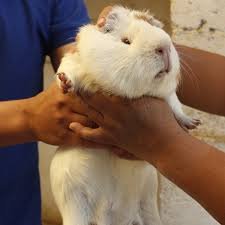.jpg)
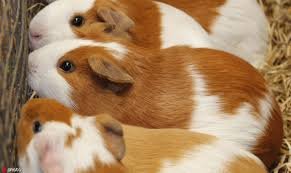.jpg)
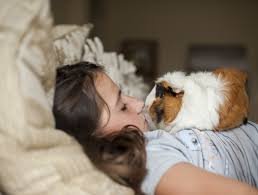.jpg)
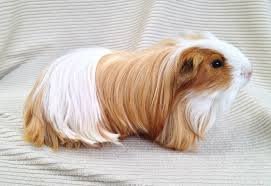.jpg)
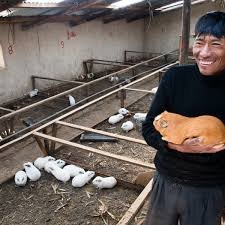.jpg)
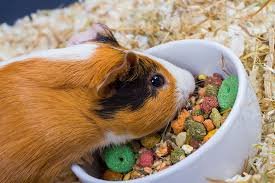.jpg)
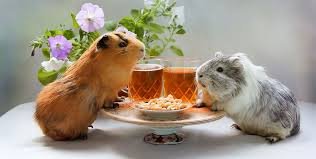.jpg)
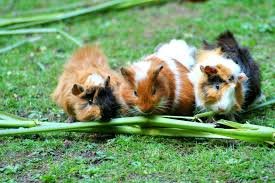.jpg)
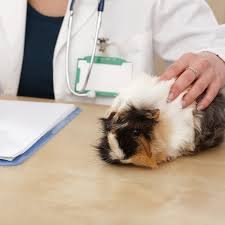.jpg)
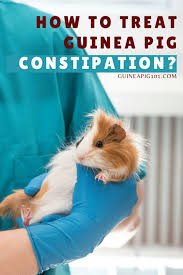.jpg)
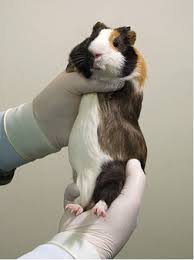.jpg)
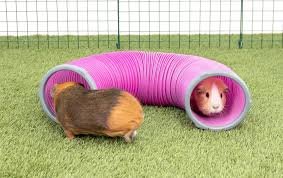.jpg)
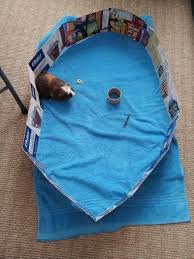.jpg)
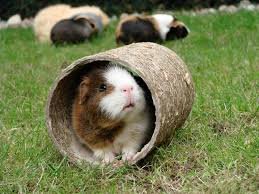.jpg)
Uncle you copied my Introduction paragraph to my past post and the said pagiarism itsnt allowed
U don't mine it
@chidiebere1 - I hope you learn as quickly as a guinea pig does. As I have just asked @sparku22, please do not plagiarise other people's content. You have copied and pasted the majority of this article from these 2 sources -
https://pets.amerikanki.com/things-know-before-buying-guinea-pig/
and
https://www.burgesspetcare.com/blog/guinea-pigs/12-fun-facts-about-gorgeous-guinea-pigs/
If you write your articles using CTRL+C followed by CTRL+V, then you are plagiarising and I would very much like you to stop doing this please.
This is not the only article you have plagiarised but it is the one I have chosen to contact you with. I urge you to listen to me.